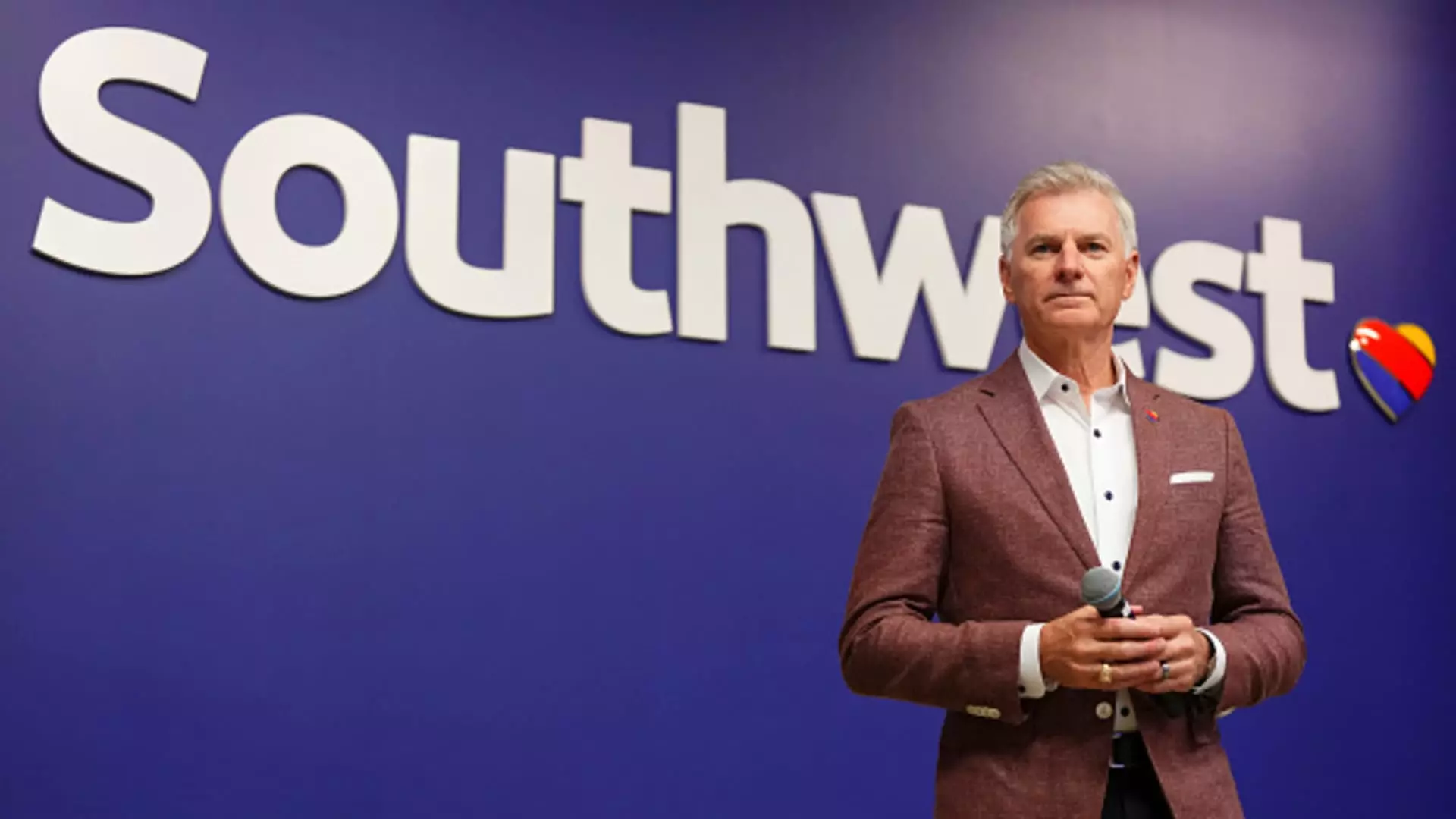Southwest Airlines recently found itself at a significant crossroads, navigating the turbulent skies of corporate governance and investor demands. A deal was brokered with activist hedge fund Elliott Investment Management aimed at pacifying tensions and restructuring the airline’s board. This agreement comes at a crucial time for the airline, which has faced scrutiny for its stagnant growth and outdated practices in a fiercely competitive industry.
The negotiations culminated in a new arrangement where six directors from Elliott’s nominee slate will be appointed to the Southwest board, a move poised to refresh and revitalize governance at the airline. This intervention is notable considering that activist investors typically seek larger shifts in power, often aiming for full control. However, in this case, Elliott’s campaign reflects a strategic compromise, as they will join an existing board that will now consist of 13 members.
Elliott’s demand for a change was rooted in a broader critique of the airline’s leadership, which has remained largely unchanged over its 50-year existence. The perceived stagnation comes at a time when competitors, such as Delta Air Lines, have innovatively transformed their offerings. The deal notably marks a pivotal moment as it accelerates the exit of long-serving Executive Chairman Gary Kelly, who will retire next month, rather than next year as previously planned.
While Southwest Airlines has been able to boast a strong brand identity and customer loyalty, it faces significant operational challenges. The new board appointments and leadership shakeup signify an acknowledgment of the urgent need for change. Both Kelly and CEO Bob Jordan have been part of the airline’s fabric for over three decades, but their leadership has attracted criticism due to the airline’s slow responses to market forces that have driven profit margins for competitors.
This prevailing sentiment was underscored by Elliott’s call for not only the removal of Kelly but also for a reevaluation of Jordan’s role. The activist investors were focused on amplifying sales strategies and enhancing profitability — areas where Southwest has reportedly lagged. This sentiment points to a broader desire among investors for a proactive approach to corporate strategy that transcends traditional operational confines.
Business dynamics within the airline industry are shifting, making agility essential for sustained success. As part of its effort to reverse its stagnant stock performance, Southwest has begun reevaluating its long-standing operational norms, such as its open seating and single-class configuration. This is a significant departure from its traditional model, which has remained virtually unchanged since its inception. The competitive landscape demands that Southwest adapt to survive; thus, the strategic reorientation could signal a pivotal turn in its business approach.
The airline’s recent financial disclosures indicate a forward-looking approach, with anticipated earnings growth driven by new revenue initiatives and cost-cutting measures, including the avowed strategy of eliminating unprofitable routes. Moreover, the authorization of a $2.5 billion share buyback reflects a commitment to increase shareholder value. However, skepticism lingers as evidenced by the stock price dip, which contrasted sharply with the anticipated earnings report.
Looking ahead, the road for Southwest Airlines will likely be fraught with challenges, alongside abundant opportunities for reinvention. While the influx of new board members from Elliott represents a promise for strategic rejuvenation, the actual implementation of radical changes remains uncertain. The collaborative dynamic between new directors and established executives could yield either a harmonious guiding force that revitalizes the airline or a contentious environment that stifles innovation.
While the agreement with Elliott Investment Management has set the stage for potentially transformative change at Southwest Airlines, it will require not only a shift in governance but a broader cultural change within the airline to ensure competence and agility in the modern travel marketplace. Ultimately, the success of this transition rests on the leadership’s ability to harness the fresh perspectives of new board members while navigating the complexities of an evolving industry landscape.

